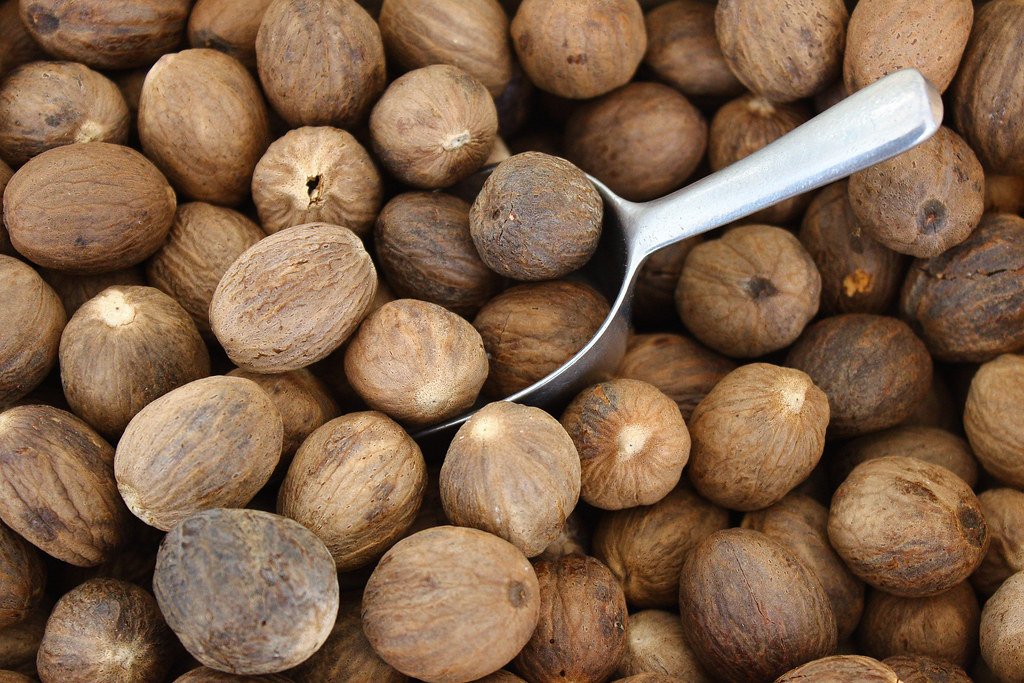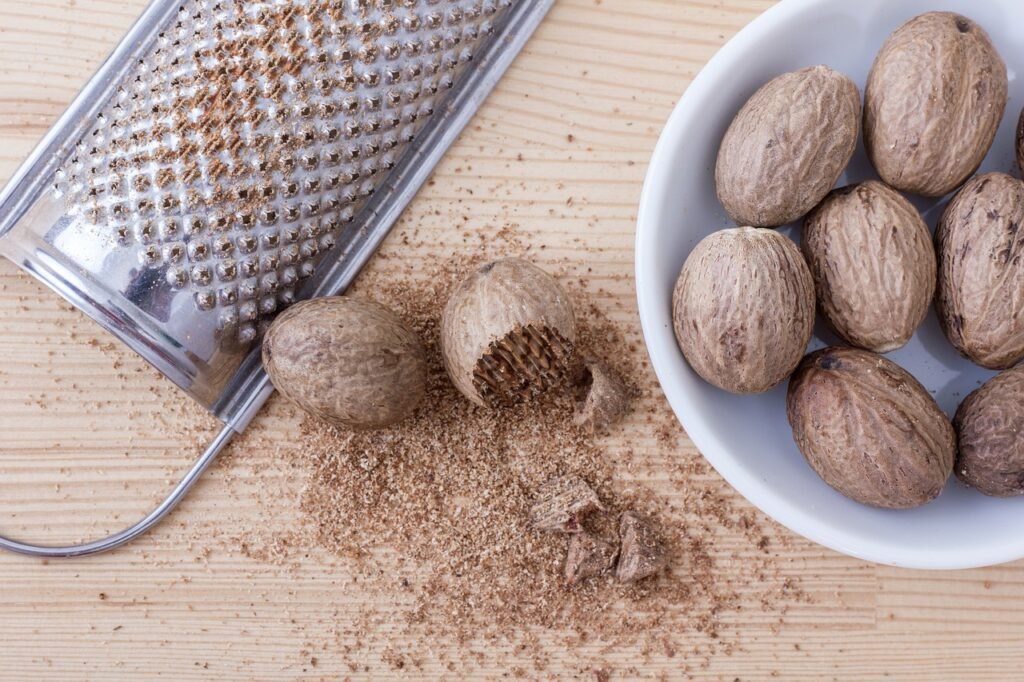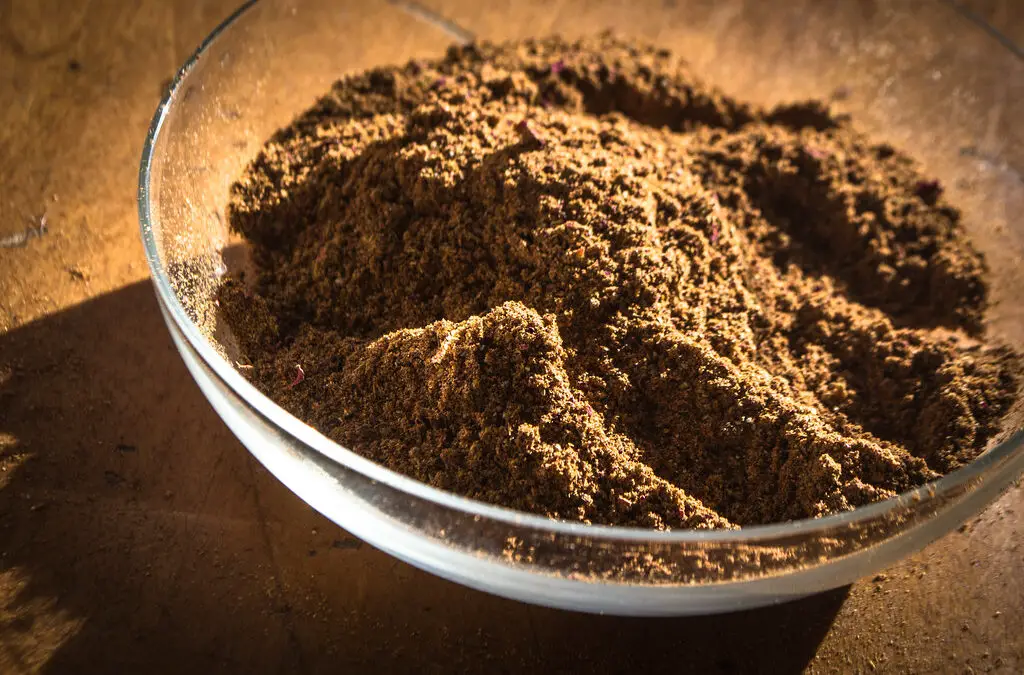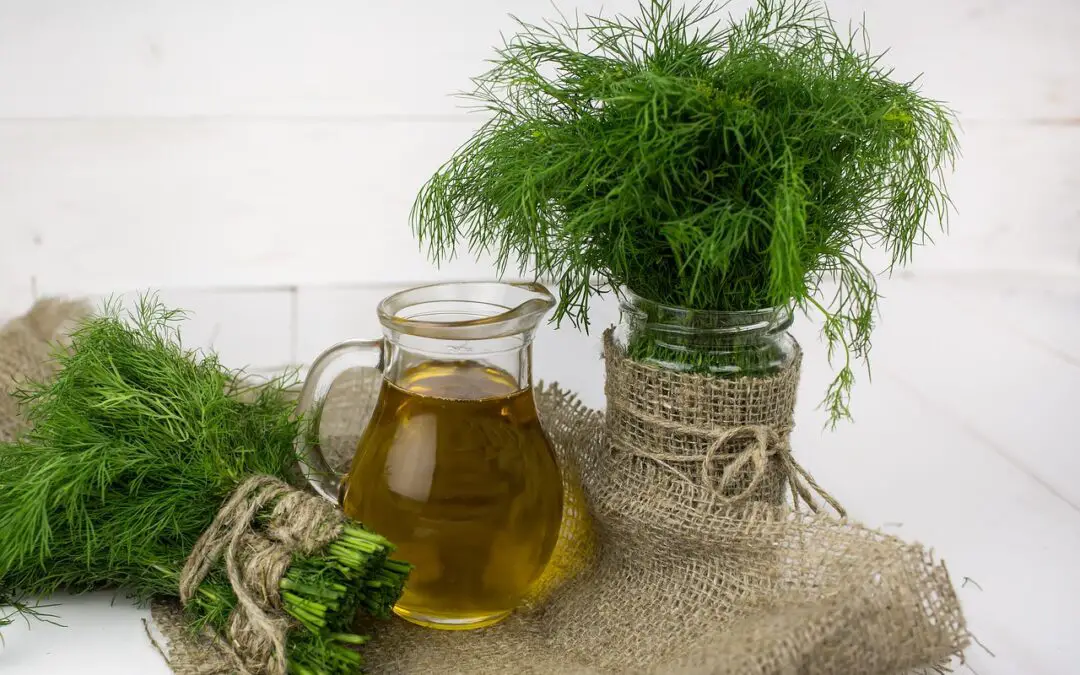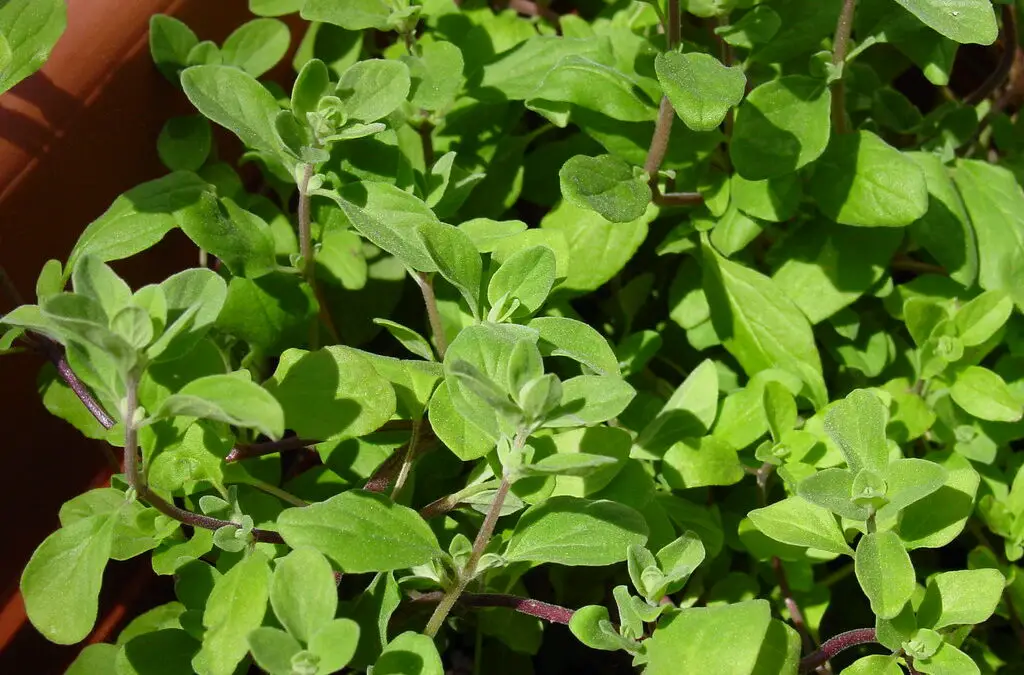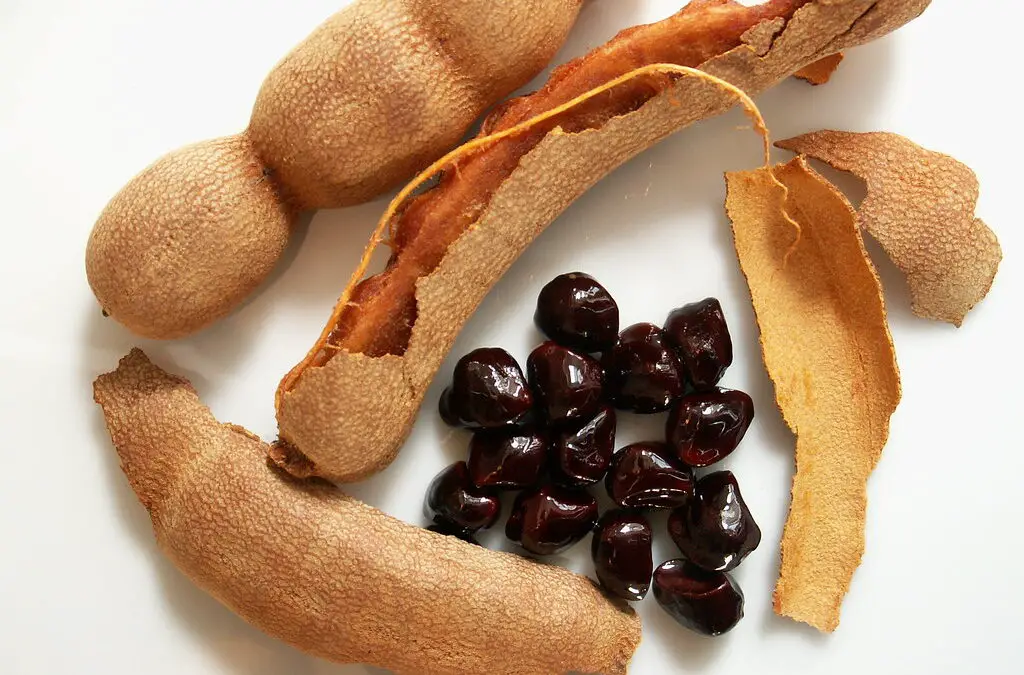Nutmeg is a spice that has been used for centuries in various cuisines and traditional medicines. It is native to the Banda Islands in Indonesia and is derived from the seed of the nutmeg tree. The spice is known for its warm, sweet, and nutty flavor, and it is commonly used in both sweet and savory dishes.
Aside from its culinary uses, nutmeg has also been used for its medicinal properties. It has been traditionally used as a natural remedy for various ailments, such as digestive issues, insomnia, and pain relief. Nutmeg contains compounds that have anti-inflammatory, antioxidant, and antimicrobial properties, which may contribute to its health benefits. However, it is important to note that excessive consumption of nutmeg can be harmful and even toxic.
What is Nutmeg Spice?
Nutmeg is a spice that is derived from the seed of the Myristica fragrans tree. The tree is native to Indonesia, but it is also grown in other parts of the world, including the Caribbean, India, and Sri Lanka. The spice is obtained by grinding the seed of the tree into a fine powder.
Nutmeg has a warm, sweet, and slightly spicy flavor, and it is often used in baking and cooking. It is commonly used in sweet dishes, such as pies, custards, and cakes, but it can also be used in savory dishes, such as soups, stews, and sauces.
In addition to its culinary uses, nutmeg has also been used for medicinal purposes. It has been used to treat a variety of ailments, including digestive problems, respiratory problems, and insomnia. However, it is important to note that nutmeg can be toxic in large doses, and it should be used in moderation.
Overall, nutmeg is a versatile spice that can add flavor and aroma to a wide variety of dishes. Whether you are baking a pie, making a sauce, or seasoning a stew, nutmeg is a spice that is worth having in your kitchen.
History of Nutmeg Spice
Nutmeg spice has been used for centuries for its unique flavor and medicinal properties. The spice comes from the seed of the nutmeg tree, which is native to the Banda Islands in Indonesia. The nutmeg tree was highly valued by ancient civilizations, including the Greeks and Romans, who believed it had magical powers.
During the Middle Ages, nutmeg was a highly sought-after spice in Europe. It was used to flavor food and drinks, and was also believed to have medicinal properties. Nutmeg was so valuable that it was often used as currency, and was even used as a gift to royalty.
In the 16th century, the Dutch took control of the Banda Islands, which were the only source of nutmeg at the time. The Dutch established a monopoly on the spice, which led to a period of violence and conflict in the region. The Dutch eventually lost their monopoly on nutmeg, but the spice remained highly valued and was traded throughout the world.
Today, nutmeg is used in a variety of dishes, including sweet and savory recipes. It is also used in traditional medicine to treat a variety of ailments, including digestive issues and insomnia. Despite its popularity, nutmeg should be used in moderation, as large doses can be toxic and cause hallucinations and other negative side effects.
Culinary Uses of Nutmeg Spice
Baking
Nutmeg is a popular spice used in baking. It is commonly used in sweet dishes such as pies, cakes, cookies, and custards. Nutmeg can be used in combination with other spices such as cinnamon, allspice, and ginger to add depth and complexity to baked goods.
One of the most popular uses of nutmeg in baking is in pumpkin pie. Nutmeg pairs well with the flavors of pumpkin and adds a warm, spicy note to the pie. Nutmeg can also be used in fruit pies, such as apple or peach, to add a subtle spice flavor.
Savory Dishes
Nutmeg is not just for sweet dishes, it can also be used in savory dishes. It is commonly used in Italian cuisine, particularly in dishes such as lasagna and béchamel sauce. Nutmeg can also be used in soups, stews, and meat dishes such as meatballs and sausages.
In addition to adding flavor, nutmeg can also be used as a garnish. Grated nutmeg can be sprinkled on top of dishes such as creamed spinach or mashed potatoes to add a pop of flavor and visual interest.
When using nutmeg in savory dishes, it is important to use it sparingly as it can quickly overpower other flavors. A little bit goes a long way, so start with a small amount and adjust as necessary.
Overall, nutmeg is a versatile spice that can be used in a variety of dishes. Whether you are baking a sweet treat or preparing a savory meal, nutmeg is a great addition to any recipe.
Health Benefits of Nutmeg Spice
Digestive Health
Nutmeg spice has been used for centuries as a natural remedy for digestive issues. It contains compounds that can help stimulate the digestive system, promoting the production of digestive enzymes and improving overall gut health. Nutmeg possesses anti-inflammatory properties that may provide relief from digestive tract inflammation, potentially easing symptoms associated with conditions such as irritable bowel syndrome (IBS) and Crohn’s disease. Additionally, nutmeg can help reduce bloating, gas, and constipation, making it a great natural remedy for those who suffer from these uncomfortable symptoms.
Brain Health
Nutmeg spice is also known for its brain-boosting properties. It contains compounds that can help improve cognitive function, memory, and concentration. Nutmeg can also help reduce stress and anxiety, which can have a positive impact on overall brain health. Additionally, nutmeg can help improve sleep quality, which is essential for brain health and overall well-being.
In summary, nutmeg spice has a range of health benefits, particularly for digestive and brain health. While it should not be used as a substitute for medical treatment, incorporating nutmeg into your diet can be a great way to support your overall health and well-being.
How to Use Nutmeg Spice
Grating Nutmeg
When it comes to using nutmeg spice, it’s important to know how to properly grate it. Whole nutmeg can be grated using a nutmeg grinder or a fine grater. Freshly grated nutmeg has a more potent flavor than pre-ground nutmeg, so it’s worth the effort to grate it yourself.
To grate nutmeg, simply hold the nutmeg firmly in one hand and rub it against the grater in a circular motion. Be sure to use a light touch to avoid grating your fingers. A little nutmeg goes a long way, so start with a small amount and adjust to taste.
Storing Nutmeg
To keep nutmeg fresh and flavorful, it’s important to store it properly. Whole nutmeg can be stored in an airtight container in a cool, dry place for up to two years. Pre-ground nutmeg should be stored in an airtight container in the refrigerator for up to six months.
If you’re not sure whether your nutmeg is still fresh, give it a sniff. Fresh nutmeg should have a strong, sweet aroma. If it smells musty or stale, it’s time to replace it.
In summary, grating nutmeg is easy and can be done with a nutmeg grinder or fine grater. Freshly grated nutmeg has a more potent flavor than pre-ground nutmeg. To store nutmeg, keep whole nutmeg in an airtight container in a cool, dry place and pre-ground nutmeg in the refrigerator.
Potential Risks and Precautions
When used in moderation, nutmeg spice is considered safe for most people. However, excessive consumption or misuse of nutmeg can lead to potential risks and side effects.
Consuming too much nutmeg can cause hallucinations, nausea, dizziness, and even seizures. Ingesting large amounts of nutmeg can also result in a feeling of being “high” or intoxicated, which can be dangerous when driving or operating heavy machinery.
Nutmeg can also interact with certain medications, including antidepressants and blood thinners. Therefore, it is important to consult a healthcare provider before using nutmeg if taking any medications.
Additionally, nutmeg contains a compound called myristicin, which can be toxic in high doses. Pregnant women should avoid consuming large amounts of nutmeg, as it may cause miscarriage or premature labor.
In general, it is best to use nutmeg in moderation and follow recommended dosages. If experiencing any adverse effects after consuming nutmeg, seek medical attention immediately.
